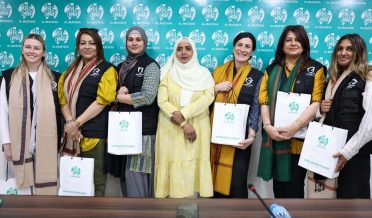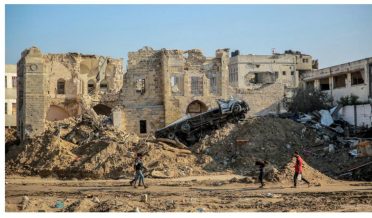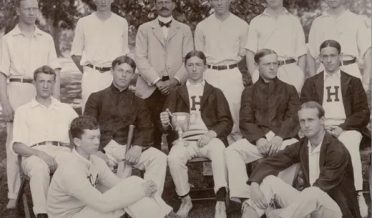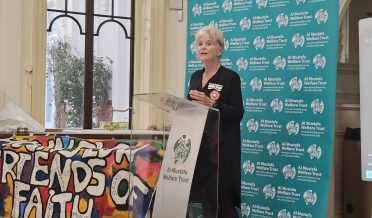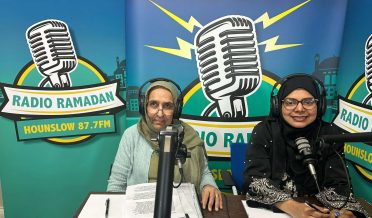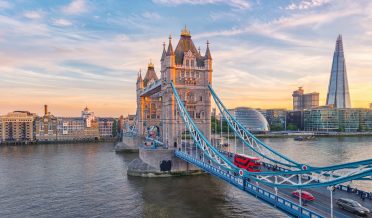A special article on the Holly month of Rabiulawal

Maqsood Ahmed
Dear brothers and Sisters, I would like to express my congratulation of the Birthday celebrations of our Holy Prophet Muhammad (peace be Upon Him). As he is sent to us as “Mercy to the Mankind “. We need to learn about each other so that, people of different faiths and maybe some with no faith come together to discuss ideas and share thoughts with one another. The topic I have chosen to talk about with you today is ‘The Importance of Inter-faith Dialogue in Contemporary Societies’. I am honoured to write a book on this topic with a good friend and colleague of mine, Dr Qadir Bakhsh MBE looking at Interfaith Dialogue from an Islamic Perspective.

At a time where the world is going through some difficult challenges, in this country and abroad, faith begins to play a big role in people’s lives. Let me begin with words from the Glorious Qur’an, the Holy Book revealed to the Prophet Muhammad over 1400 years ago. There are many instances in the Qur’an where Allah Almighty has not just instructed Muslims, but has instructed all people, humanity. The Qur’an tells us in Chapter 49, verse 13, ‘O people! We created you from one man and one woman and made you branches and tribes that you may recognize one another. Undoubtedly, the most respected among you in the sight of Allah is he who is more pious, verily, Allah is knowing, Aware. In another chapter of the Qur’an, Chapter 17, Verse 70, the Qur’an tells us, ‘Indeed We have honoured the Descendants of Adam and transported them over land and sea, and gave them good things as sustenance, and made them better than most of Our creation’.
For the purposes of this topic, it would be beneficial to begin by defining what Interfaith is, before moving onto the importance of dialogue. Many of you reading this article may have your own definition and thoughts about what interfaith is. Interfaith may mean different things to different people. But it in the academic literature a variety of definitions have been given. A definition that we agreed to go with in our book was, ‘Interfaith is a process for the purpose of mutual understanding, appreciation, and enrichment for the adherent of various faiths’. This is the idea that we do not necessarily have to have the same beliefs but appreciate one another by allowing those different beliefs to exist. As someone from the Muslim faith, Islam as a religion you could say is ‘pro’ interfaith. The Qur’an tells us in Chapter 109, verse 6 “For you is your religion, and for me is mine”. This emphasises the point to me as Muslim, that let people practice the faith that they want. The second part to the topic is dialogue. What do we mean when we say ‘dialogue’? This phrase Interfaith Dialogue is branded about quite often. One definition given to this is the idea that dialogue often involves promoting understanding between different religions to increase acceptance of others, rather than to create and synthesize new beliefs. There have been academics who have written that in the history of religion, conflicts have been more the situation than dialogue. In simplistic terms, the objective of having interfaith dialogue would be to resolve conflicts and reduce tensions and promote peace and harmony in society.

Unfortunately, in the society we live in today we have witnessed numerous attacks that have taken place in the name of religion. Islamophobia, Anti-Muslim hatred, Anti-Semitism are current examples spoken about vastly in the media, are issues which have been rising rapidly. These negative sentiments need to be non-existent in contemporary society for there to be peace and harmony in society. One way to do that is through dialogue, simply speaking to one another. We live in a society today where people today are worried about offending others, but until we are not able to demolish of those barriers there are within communities in this country today this notion of peace and harmony is not going to be easy to achieve. In Arabic there is a term, ‘Ta’rafu’ which means to know each other. That is the point of interfaith, we must get out of our comfort zones within our own communities and have initiatives like the Hounslow Friends of Faith to build these bridges within our society. Whether you are a Muslim, Christian, Jew or belong to any other faith we must work together and have peaceful interaction with one another to clear any misconceptions and thoughts. It is true is it not, that when it comes to interfaith dialogue we only speak about the nice things and sometimes are may be too afraid to ask those difficult questions. Faith plays a vital role in the lives of people throughout the world. Whether it is in good times or bad, those who believe in a religion will in some way be ideologically driven to think a certain way. Interfaith dialogue is about having those beliefs and not imposing them on anyone else but rather sharing them with others.
If we look at the three Abrahamic Faiths in the world today, Judaism, Christianity, and Islam there are close similarities within their beliefs. All three religions believe in One Almighty God, all three submit to the Divine will and surrender before him. But why then is there so much negativity and hostility amongst them? One could argue that it is because there is a lack of understanding between, a lack of dialogue, a lack of acceptance of one another. However, interfaith dialogue is the opposite of this. It promotes to accept other beliefs and encourages to learn about someone who may not believe what you believe, but to have that concept of understanding. There are organisations up and down this country and globally who are doing amazing work on bridging this divide that is so prevalent in society today, but we need to do more.
Being a devout Muslim, the teachings of the Prophet Muhammad (Peace Be Upon Him) are examples that we can all learn from. There was incident in the life of the Prophet when a delegation me with Him (Peace Be Upon Him) to find out about Islam. He allowed for them to stay in the Mosque and also allowed for them to pray in their own way. The Holy Prophet also sent delegations around the world to spread information about Islam. Another moving incident in the life of the Prophet, again exemplifying the respect and acceptance he had for other faiths demonstrating the true image of what Interfaith looks like was when a funeral passed by the Messenger (Peace be Upon Him) and He stood up. It was said to him by some companions, “it is a Jew”. The Prophet said, “Was he not a soul?” If we were to adopt this sort of character, don’t you think this world would be a better place? Interfaith dialogue in contemporary societies is vital for us today and for our generations to come. This year alone we have seen the dreadful attacks on a Mosque in New Zealand, Churches in Sri Lanka, a Synagogue in America by individuals and organisations who want to divide us. We must not let that happen. The solidarity which followed these attacks were a true representation of how religions should respond to such barbarity in the world today. I was pleased to see that people of faith and no faiths came together in condemnation of the attacks and gave their support to each other. We must engage in dialogue and become accepting of one another.
There were people who had not ever visited a mosque, a church a synagogue or other religious places sacred to people but we now see that places of worship have opened their doors for people to come in and have that conversation with people from different backgrounds and learn about one another. In my time as a Senior Faith Advisor at the Civil Service, I was fortunate enough to visit many places of worship and speak with faith leaders and their congregations. Since I became the Director of UK Programme at the Al Mustafa Welfare Trust, Interfaith Dialogue has been a key project that I have established and wish to continue to work and expand this noble vital work.
In 2017 I held a very successful Imam and Rabbi Engagement event, where I launched community initiatives to promote integration and understanding. We found that it was important that we hold many events where member of all Faiths and no faith sit down and discuss issues affecting our communities in the UK today. As mentioned earlier, religious hate crime is on the rise, where it is Anti-Semitism, Islamophobia/Anti-Muslim Hatred. We ought to work together on these problems.
We have also held a community forum event in many cities and towns, which again was highly appreciated by the community in the areas. Where people of all backgrounds who came and had an open and honest discussion about issues concerning Islam. To bring members of different faiths together and have dialogue about issues of mutual concern is beneficial for everyone. Collective ideas of how to overcome problems which affect all communities is crucial in contemporary society.
I am a member with the World Congress of Faith where we have a partnership to work with the organisation to providing them with support through sponsorship of events and in any other way that we can. These are just a few examples of the way in which we at Al Mustafa Welfare Trust International are reaching out and trying to get the important discussions about faith and helping the community to get together to understand each other faiths and values , which are mostly common to all human beings.
Let’s continue our work to bring community together and be passionate to speak to one another regardless of race, religion or background. We can all learn from one another. We now have to adopt new near normal in the light of Covid-19 and be creative to bring community together to break the isolation by adhering the Government rules to protect ourselves and other vulnerable groups and individual in our societies. We at the AL Mustafa Welfare Trust are embarking on many projects under the banner of UK Programme, which includes, Inter-Faith Dialogue, Prisoner’s Resettlement/ Rehabilitation both pre and post release Drug’s Misuse/ abuse awareness, Women Leadership/ empowerment.
Please join us to help us to expand and deliver this noble work here in our neighbourhood by donating funds and being volunteer with us.
(Maqsood Ahmed OBE is working for Al Mustafa Welfare Trust as Director for UK Programme)


